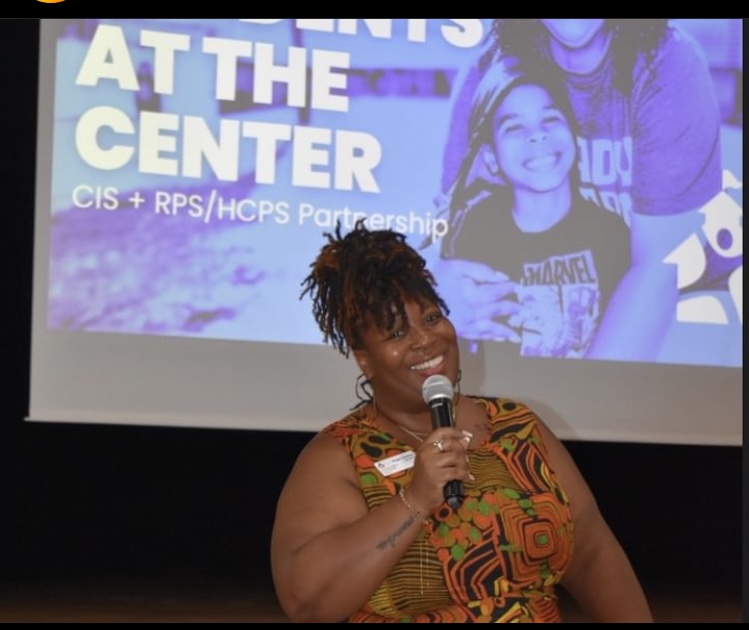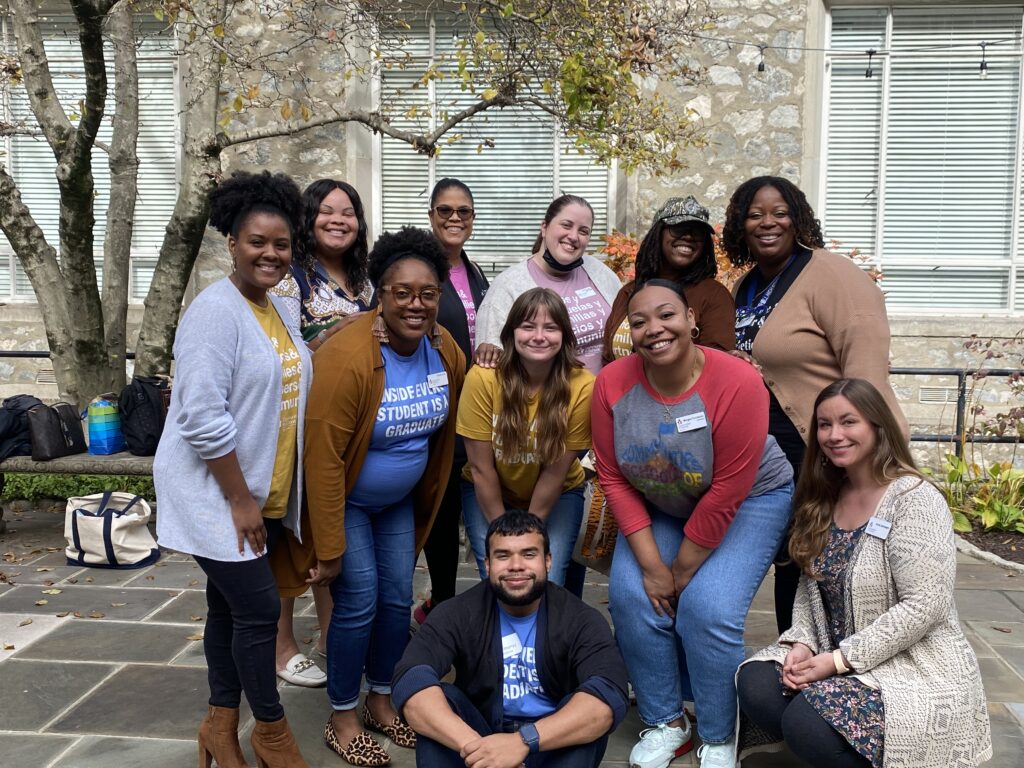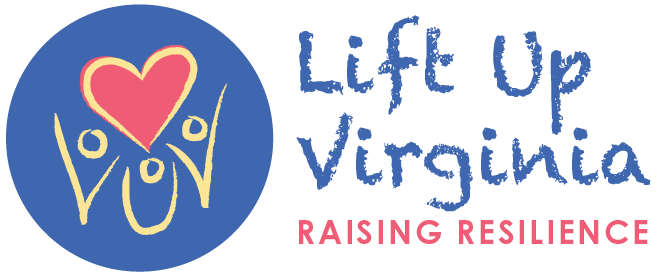by Marrin Scalone, LUV Editor

“If we continue to plant seeds, eventually they will grow. You may not be able to see the impact now, but somebody will feel those impacts down the road. The relationships, consistency, and love are the beauty that comes from bringing your genuine self.”
As many natural born healers find themselves, Angel Perkins entered the field of education determined to help. Her passion for working with students blossomed when she joined Communities in Schools (CIS), a national non-profit organization centered around school-based student support. From the beginning of this work, Angel understood the vital impact of relationships and connection. This passion served as a compass to guide our conversation.
In 2021, Angel transitioned into the role of Program Director at CIS Richmond. Though this supervisory role has less direct student engagement, she remains a pivotal key to maintaining a connected school climate. By ensuring the school-based staff have the resources and support needed, Angel fosters sustainable relationships through the ever-present challenges faced by schools today:
“I’m still making sure I know the names and the faces of the students that need the extra love and support, and just being present on the days in I’m in the building,” Angel explained to me. “Even though I’m not with them day by day, they still get that ‘Hi!’ and some love when they see me.”
New Wave School Challenges
Angel and I discussed the current school climate, post-pandemic classroom challenges, and subsequent student experiences:
“The challenges are certainly more consistent. But everyone needs a caring person as support, that doesn’t change, no matter the challenge or new struggles. Everybody needs somebody and that somebody makes a difference.”
Teachers need more hands, and organizations like Communities in Schools are critical resources for increasing relational capacity within a classroom. I asked Angel her thoughts on the potential barriers schools face when cultivating a whole-student approach:
“We’re a test focused state, and some curriculums focus on teaching for tests rather than teaching for success. We oftentimes see students being advanced into higher grades when they lack the social skills to keep up.
Also, teachers are understandably tired. This causes a ripple effect in the classroom. One that compounds. And even with this identified need, our resources still sometimes aren’t enough. It requires creativity to help give them the support they need. Families are feeling the weight of these deficits back at home, and we have to find new ways to support.”
The Power of Connection
Innovation towards creative and sustainable support requires the ingredient Angel sees as the ultimate solution: connection. Consistently maintaining relationships, regardless of resource deficits or barriers to systemic change, allows the energy potential within students to flourish, empowering them to answer the call themselves:
“I was at a middle school, where one of my previous case-managed students is now a behavior specialist. One day, she stopped me in the hallway and said ‘Ms. Perkins, you don’t understand how much you impacted me. You showed me my life wasn’t all bad. Now I can show these students too.’ She’s become the person she needed back when I knew her. Even when we don’t always have the fix, just knowing you have a listener makes all the difference. That’s been the biggest takeaway. These consistent relationships and connections.”
Connection-centered support can not only impact on an interpersonal level, but also creates safety and trust when outsourcing to higher levels of care:
“When I’m connecting a family with resources and guiding them towards services, if they don’t feel confident or assured, then these families and students will persist in lacking essential support. The solution lies in authentic relationships. Establishing trust is key. The way we get around this is genuine relationships. We create that trust factor. If I’m telling you things can get better and we will get this done, you know I’m telling you the truth.”
Nuggets of Hope
During times of need or stress, identifying what grounds us is crucial to preventing burnout. As staffing shortages persist and workload grows for a diminishing workforce, fostering relationally based healing within school communities provides relief for system-wide strain. This sentiment rings true to Angel, whose own personal hardships this school year have tested the strength of her connections to her team:
“I work with some of the most resilient students and staff. People who, day in and day out, are willing to put on some clothes and try.

[On bad days] I know it can’t always be like this. If we continue to plant seeds, eventually they will grow. You may not be able to see the impact now, but somebody will feel those impacts down the road. The relationships, consistency, and love are the beauty that comes from bringing your genuine self.
Always presenting your authentic self isn’t easy. I lost my brother in February 2023, and life has been rough. I think the way I show up daily is by not giving up, by being my best self for him… to live a life that he and I would be proud of. To make an impact for both of us.“
As Angel continues to advocate for authentic, connection-driven school resources, she serves as a beacon of hope, humor, and humanity to those she meets. Her dedication to honoring herself through utilizing her innate call to serve, while also refusing to pour from an empty cup, serves as an incredible example of showing up as you are.
To contact Angel Perkins, please reach out via email at aperkins@cisrva.org
To learn more about Communities in Schools, visit https://cisrva.org/.
For more information about the impacts of school connectedness: visit https://www.cdc.gov/healthyyouth/protective/school_connectedness.htm.
Are you ready to tell your community story?
Submit Your LUV Story
Submit your inquiry here, with a brief description of your topic of interest. Every story has purpose and meaning, and we’d be happy to help tell yours!
